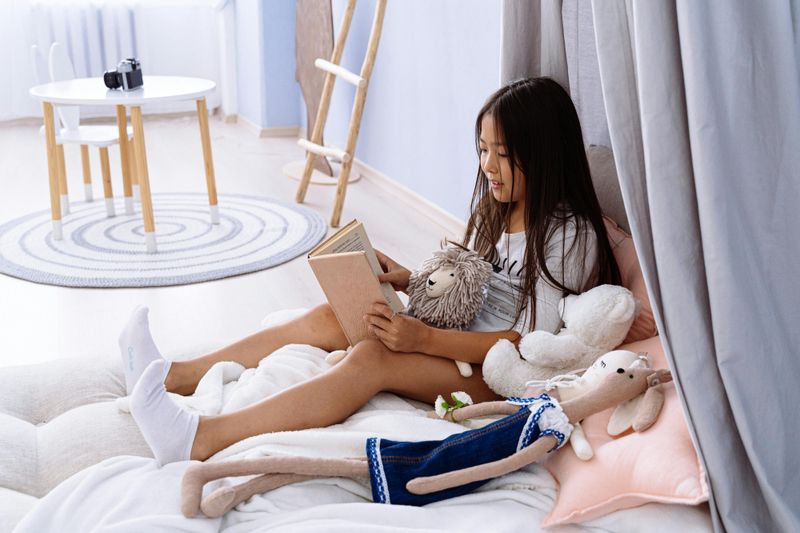Parents, Avoid These 13 Questions That Do More Harm Than Good

Parenting is a minefield of good intentions. Most moms and dads want what’s best for their children, but the words we use—especially the questions we ask—can leave invisible scars. While it’s natural to want to understand, correct, or guide, some common questions actually do more harm than good. They can shame, belittle, or pressure children in ways that stunt emotional growth or damage their self-worth.
1. Why can’t you be more like your brother/sister?

Phrases like this can plant long-term seeds of resentment between siblings. Children thrive when they feel seen and accepted for who they are—not who they’re being compared to.
Instead of motivating, this question often sends the message that the child is a disappointment or not measuring up. It can make them feel unloved or inferior, even if that wasn’t the parent’s intention.
Every child has a unique personality and pace of development. Celebrate those differences rather than stacking them against each other. Individual encouragement always beats comparison when it comes to building confidence and self-esteem.
2. What’s wrong with you?

Few questions feel more crushing to a child than this one. It implies that the problem lies not in their behavior, but in their very identity.
This type of questioning can trigger shame and confusion, especially when the child doesn’t understand what they did wrong. Instead of helping them learn, it pushes them into a defensive emotional state where real communication becomes difficult.
When a child misbehaves or struggles, ask about the situation—not their character. Reframe the question to focus on what happened and how they feel, rather than suggesting something is inherently wrong with them.
3. How many times do I have to tell you?

Frustration is understandable, especially when a child repeatedly ignores guidance. But this question communicates impatience rather than support.
It implies that the child is either deliberately disobedient or incapable of learning, which can discourage them from trying. Often, repetition is a natural part of how kids learn, especially with routines, manners, or new responsibilities.
Instead of repeating the same question, try changing your approach or helping them develop reminders or strategies. Children often need support, not sarcasm, to build consistency in their behavior.
4. Aren’t you too old for that?

Whether it’s a stuffed animal, a tantrum, or needing a nightlight, every child has their own timeline for growth and independence.
This question can embarrass a child into abandoning something they’re not emotionally ready to let go of. It sends the message that growing up is about pleasing others, rather than growing in their own time.
Supporting a child’s sense of security is more important than pushing them to “mature” faster. Offer encouragement and gently guide them toward new milestones when they’re ready—not when you think they should be.
5. Do you want me to get angry?

Threats framed as questions create a climate of fear instead of respect. This one, in particular, uses emotion as a weapon.
Children may comply temporarily, but they learn to behave out of fear rather than understanding. Over time, they may become anxious, withdrawn, or even rebellious, knowing that punishment is the only consequence of mistake.
Discipline should come from calm leadership, not intimidation. Clear boundaries and consistent follow-through are far more effective than threats. Kids respond better when they feel safe, even when they’re being corrected.
6. Why are you crying? That’s nothing to cry about.

Emotional invalidation like this teaches children that their feelings are inconvenient or irrational. It tells them to bottle up rather than express what’s going on inside.
To an adult, the reason might seem small—but to a child, it can feel overwhelming. By dismissing their emotions, you discourage emotional intelligence and shut down trust.
Instead of minimizing their experience, try asking, “Do you want to talk about it?” or “That must feel really tough.” Letting kids express their feelings helps them learn to cope with them in healthy ways.
7. Are you really going to eat all that?

What seems like a light comment can spark long-lasting issues with body image and self-worth. Kids are especially sensitive to how their bodies and eating habits are perceived.
This question implies judgment—about appearance, appetite, or control. Over time, it may contribute to shame around food, or worse, disordered eating behaviors in an effort to “earn” approval.
Instead, support a healthy relationship with food by modeling balance and mindfulness. Let your child learn to trust their own hunger and fullness cues without attaching moral weight to what or how much they eat.
8. Don’t you want to make me proud?

The desire to feel proud of your child is natural—but asking this question makes love feel conditional. It suggests that their worth is tied to performance.
Rather than feeling inspired, many kids hear this as pressure. It shifts their focus from personal growth to pleasing others, which can cause anxiety and diminish self-motivation.
Instead, let them know you’re proud of their effort, not just their achievements. And emphasize that your love and pride are constants, not rewards they have to earn.
9. What did you do this time?

Starting from a place of accusation makes your child feel like they’re always in trouble—even when they’re not. It can damage trust and make them dread communication.
When a parent assumes wrongdoing, it sends the message that mistakes are expected—and that they define the child. This may cause them to become secretive or defensive instead of honest.
Approach with curiosity, not judgment. A better question might be, “Is everything okay?” or “Can you help me understand what happened?” This keeps the lines of communication open and respectful.
10. Why aren’t you more social like other kids?

Introverted children often feel out of place in a world that celebrates extroversion. This question only amplifies that discomfort.
It implies that something is lacking or broken in their nature. Instead of building social confidence, it makes them feel like they need to change to be accepted—even by their own parents.
Help your child grow at their own pace. Encourage social opportunities without forcing them, and praise their strengths, whether it’s quiet observation, empathy, or creativity. Everyone socializes differently—and that’s okay.
11. Who gave you that idea?

A question like this—especially when asked with sarcasm—can shut down your child’s willingness to think creatively or express themselves.
It implies that their thoughts aren’t valid unless they came from the “right” source. Children begin to doubt their own instincts and may stop sharing ideas altogether out of fear of being mocked or corrected.
Rather than questioning the source with suspicion, explore the thought with interest. Ask what they liked about the idea or how they came to it. This encourages open thinking and self-expression.
12. Is that what you’re wearing?

Clothing is one of the first ways children and teens assert their independence. This question, however subtle, often reads as disapproval or judgment.
It can make them feel embarrassed or insecure about their appearance, especially during developmental stages when body image is fragile. Even if well-intended, it risks sending the message that their choices are “wrong.”
If there’s a genuine concern—like appropriateness for the weather or occasion—express it calmly and specifically. Otherwise, allow them to explore their identity through their wardrobe without shame or ridicule.
13. Don’t you trust me?

This guilt-laden question puts the burden of trust on the child, rather than fostering mutual respect. It can backfire, especially during adolescence.
Instead of building connection, it makes the child feel like they’re doing something wrong by wanting privacy or independence. Trust should be a two-way street, not a tool to extract compliance.
Focus on having honest conversations that earn their trust, rather than demanding it. Let them know that you’re there to support them—even when they need space or make mistakes.

Comments
Loading…